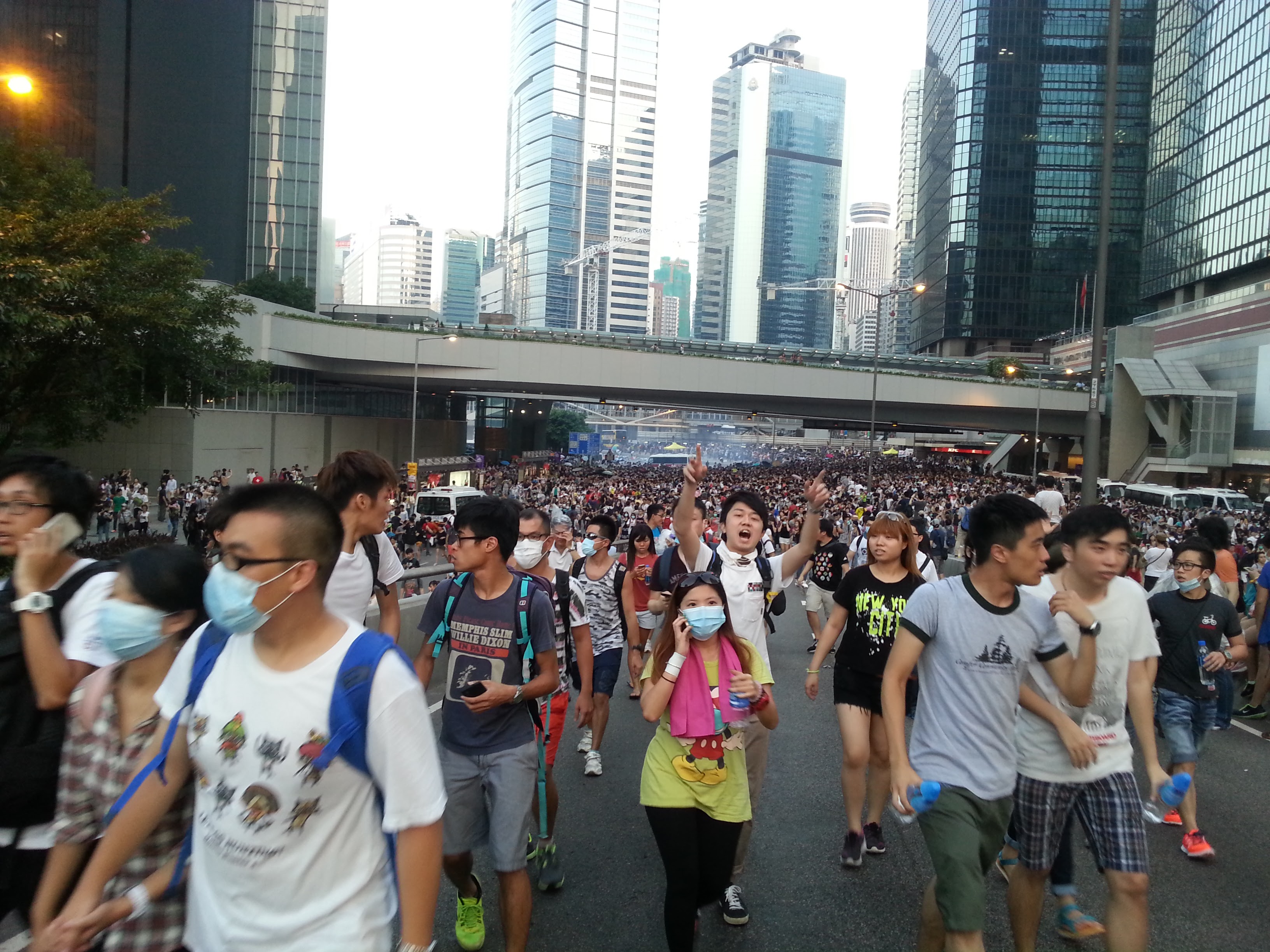For more than ten weeks at the end of 2014, tens of thousands of ordinary people, many of who previously had no real interest in politics, occupied the streets of Hong Kong to demand genuine democracy and the right to elect leaders of their own choosing.
The protests, which would come to be known as the Umbrella Revolution, were by far the most important and inspiring acts of civil disobedience I had witnessed since first coming to Hong Kong in 1988. I was in Admiralty when police first used teargas against the demonstrators on 28 September (see photo below) and spent many evenings at the Occupy Mongkok site, near my office, including the night police first tried and failed to clear the protesters.

Police officers fire teargas at demonstrators in Admiralty, triggering even more mass protests. 28 September 2014
On the first anniversary of the protests, I published a letter to then financial secretary John Tsang questioning the decision in his 2015 budget to compensate Hong Kong businesses HK$290 million for the alleged “losses” they incurred during the protests. The letter outlined my thoughts on why the movement had been an overwhelmingly positive development for Hong Kong as a whole.
Mr Tsang did not reply to the letter but nine months later I cornered him at a reception at the Hong Kong Foreign Correspondents Club. He was very polite but evasive, saying the HK$290 million was “just a small amount,” and a “gesture of support.” I suggested that the gesture was unwarranted and sent the wrong signal, at which point he started to look around the room for someone else to talk to.